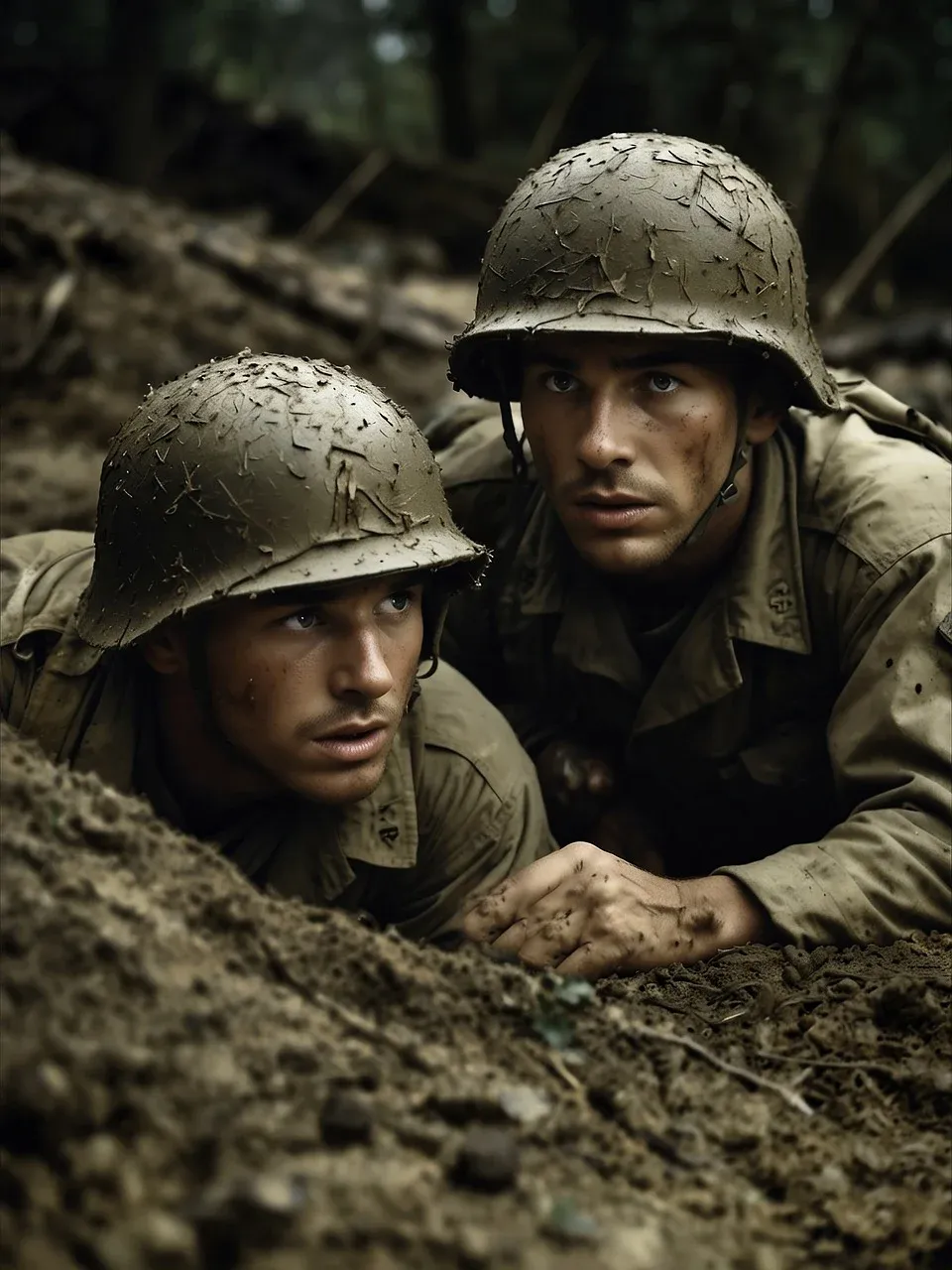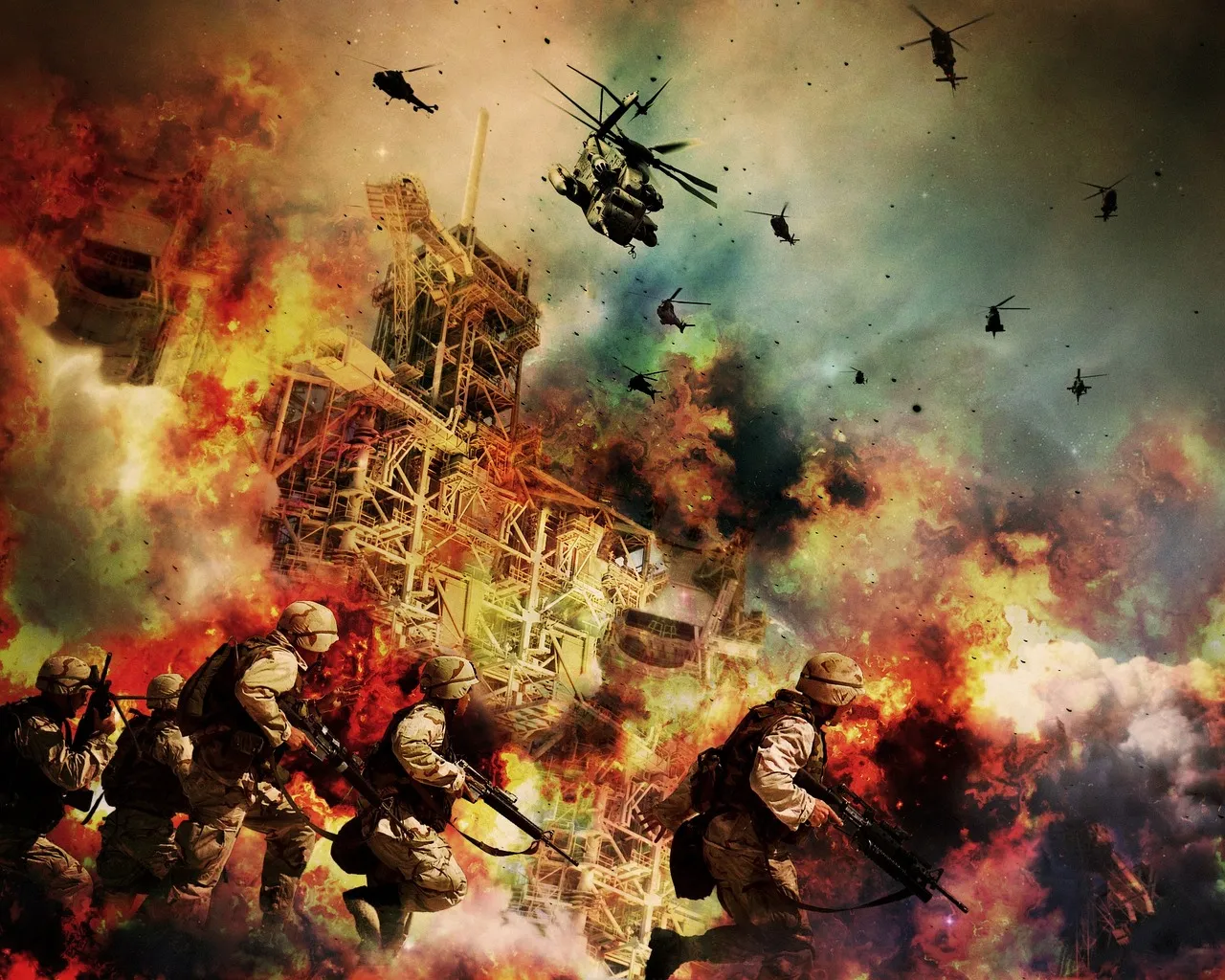
The return of the son

"I go because it is my duty! Otherwise, I would stay with you because I know you need me," said the young man to his elderly parents.
We know. When you return, we will be waiting for you here," the parents assured him in a firm and definite promise.
The war had raged: it was bloody and fierce, like an all-consuming, ravenous monster. As in all wars, entire cities were razed to the ground, lives were lost, dreams were shattered. In spite of that, the memory of that abandoned life kept that young man alive:
"There in Maroabo I have a small house, in the garden there are planted cactus and in the middle is the grave of my dog," the young man told his army friends.
"And where is Maroabo?" -asked his comrades on those nights of vigil.
"It is near a river and one of the highest mountains you have ever seen. There you can plant an orange tree and you will have the sweetest oranges. Even the stones are prettier in Maroabo, because they are smooth and colorful. When I lived in Maroabo I was very happy". -The young man said, his eyes shining in the uncertain darkness.

"If I had in Maroabo I would surely be milking the cows or taking the horses to the river,_ yearned the haggard boy as he lay down on a makeshift bed in the middle of the field. In Maroabo he was very happy and there he was not afraid of anything. The smell of things was so familiar that I could know what was around me without opening my eyes: it smells of roasted coffee, it smells of green, the rain is coming, there are ants on the ground. Here, on the other hand, everything is uncertainty and fear". -He said and dropped his eyelids as if with that gesture he could have the power to transport himself to the past.
In the battle itself, in the midst of the nocturnal outbursts, a single thought crossed the mind of that young boy:
"What could my parents be doing if I am not there and it was me they were talking to at this hour?" -The starving and yellowish face in those anguished and dramatic moments was crossed by dissimilar thoughts - "If I could be there and not here, they would be happy" - the boy imagined while the sky turned orange, silver, red as if it were a gigantic bonfire.

He crossed the first street and although the town seemed desolate, he seemed to hear the sounds of his childhood: Edulci shooing the dogs, Lucrecía selling her cakes, Arsenio telling stories in the plaza, the church bells ringing every hour and his parents calling him from the house:
"Come and eat, boy, the food is ready!"

He hurried when he saw that two people, resembling his parents, were at the door, waiting for him. When he arrived in front of them he saw that time had not passed: his parents were also the same, without a wrinkle more or less, smiling, happy to see him:
"We were waiting for you"_ said the mother.
"I knew it, that's why I came. Everything is still the same here," assured the young man.
"Only in your memory. Because the real Maroabo has disappeared". -said the father sadly.
"So you don't exist?" -asked the young man in amazement.
"No, and neither do you". -One of the elders was heard to say and at that very moment the three figures disappeared leaving a devastated landscape, ghostly and desolated by the war.

All images are free of charge and the text is my own, translated in Deepl


Thank you for reading and commenting. Until a future reading, friends
![Click here to read in spanish]
El regreso del hijo
Desde que aquel joven se había ido de Maroabo, había querido regresar. Nunca pudo ser tan feliz como fue en aquel sitio. En aquel pueblo vivió por más de 18 años con sus padres, quienes lo despidieron cuando tuvo que ir a la guerra.
_¡Voy porque es mi deber! De lo contrario, me quedaría con ustedes porque sé que me necesitan –dijo el joven a sus padres ancianos.
_Lo sabemos. Cuando regreses, aquí te estaremos esperando –aseguraron los padres en una promesa firme y definitiva.
La guerra había arreciado: era cruenta y feroz, parecía un monstruo voraz que lo consumía todo. Como en todas las guerras, había ciudades enteras arrasadas, vidas desaparecidas, sueños rotos. A pesar de eso, el recuerdo de aquella vida abandonada, hacía que aquel joven siguiera viviendo:
_Allá en Maroabo yo tengo una casita pequeña, en el jardín hay cactus sembrados y en medio está la tumba de mi perro –le contaba el joven a sus amigos del ejército.
_¿Y dónde queda Maroabo? –preguntaban los compañeros en aquellas noches de vigilia.
_Queda cerca de un río y de una de las montañas más altas que hayas visto. Ahí puedes plantar un árbol de naranja y tendrás las naranjas más dulces. Hasta las piedras son más bonitas en Maroabo, porque son lisas y de colores. Cuando yo vivía en Maroabo era muy feliz. –contaba el joven y le brillaban los ojos en aquellas oscuridades inciertas.
Otras veces, mientras limpiaban sus armas, el joven suspiraba:
_Si yo tuviera en Maroabo estaría seguramente ordeñando las vacas o llevando los caballos al río –añoraba el muchacho ojeroso mientras se tiraba en un lecho improvisado en mitad del campo-. En Maroabo era muy feliz y allá no le tenía miedo a nada. El olor de las cosas era tan conocido que podía saber qué había alrededor sin abrir los ojos: huele a café tostado, huele a verde, viene la lluvia, hay hormigas en el suelo. En cambio aquí, todo es incertidumbre y miedo. –decía y dejaba caer sus párpados como si con aquel gesto pudiera tener el poder de transportarse al pasado.
En la propia contienda, entre estallidos nocturnos, un solo pensamiento cruzaba la mente de aquel joven muchacho:
_¿Qué estarán haciendo mis padres si yo no estoy allá y era conmigo con quien hablaban a esta hora? –el rostro famélico y amarillento en aquellos momentos angustiosos y dramáticos era cruzado por pensamientos disímiles - Si pudiera estar allá y no aquí, ellos serían felices –imaginaba el muchacho mientras que el cielo se tornaba naranja, plateado, rojo como si fuera una gigantesca hoguera.
La guerra no duró un mes, ni un año, duró muchos años como una vorágine mundial. Cada ciudad, cada pueblo, se convirtió en una sombra gastada y abstracta de lo que fue en el pasado. Sin embargo, cuando el joven muchacho regresó a Maroabo encontró que cada cosa estaba en su sitio, tal cual como él la había dejado: Las calles empedradas, como las recordaba, estaban bordeadas por un musgo verde que aparecía con la lluvia; las gallinas picoteaban a las hormigas que en fila cargaban hojas secas; los pájaros trinaban serenatas a todos los que pasaban debajo de los árboles y una fría brisa abrazaba a los forasteros que llegaban a Maroabo por vez primera.
Atravesó la primera calle y aunque el pueblo parecía estar desolado, él parecía escuchar los sonidos de su infancia: Edulci espantando los perros, Lucrecía vendiendo sus tortas, Arsenio echando cuentos en la plaza, las campanas de la iglesia a cada hora y sus padres llamándolo desde la casa:
_¡Ven a comer, muchacho, que ya la comida está lista!
Y el joven, sin pensarlo mucho, aceleró sus pasos rumbo a la casa familiar donde seguramente debían estar esperándolo. Caminó por las aceras de cemento gris y vio su casa pequeña, esa de la que tanto había hablado, en una esquina. Se detuvo y miró los cactus que había sembrado, también la pequeña cerca de madera, que bordeaba al jardín, estaba intacta y en un gesto heroico, el joven alzó los brazos al cielo.
Se apresuró cuando vio que dos personas, parecidas a sus padres, estaban en la puerta, esperándolo. Cuando llegó frente a ellos observó que el tiempo no había pasado: también sus padres estaban iguales, sin una arruga más y sin una arruga menos, sonrientes, contentos de verlo:
_Te estábamos esperando –dijo la madre
_ Yo lo sabía, por eso he venido. Todo sigue igual aquí –aseguró el joven.
_Solo en tu memoria. Porque el verdadero Maroabo ha desaparecido. –acotó el padre con tristeza.
_¿Entonces ustedes no existen? –preguntó el joven extrañado.
_No y tú tampoco. –se escuchó decir a uno de los ancianos y en ese mismo instante las tres figuras desaparecieron dejando un paisaje devastado, fantasmal y desolado por la guerra.
